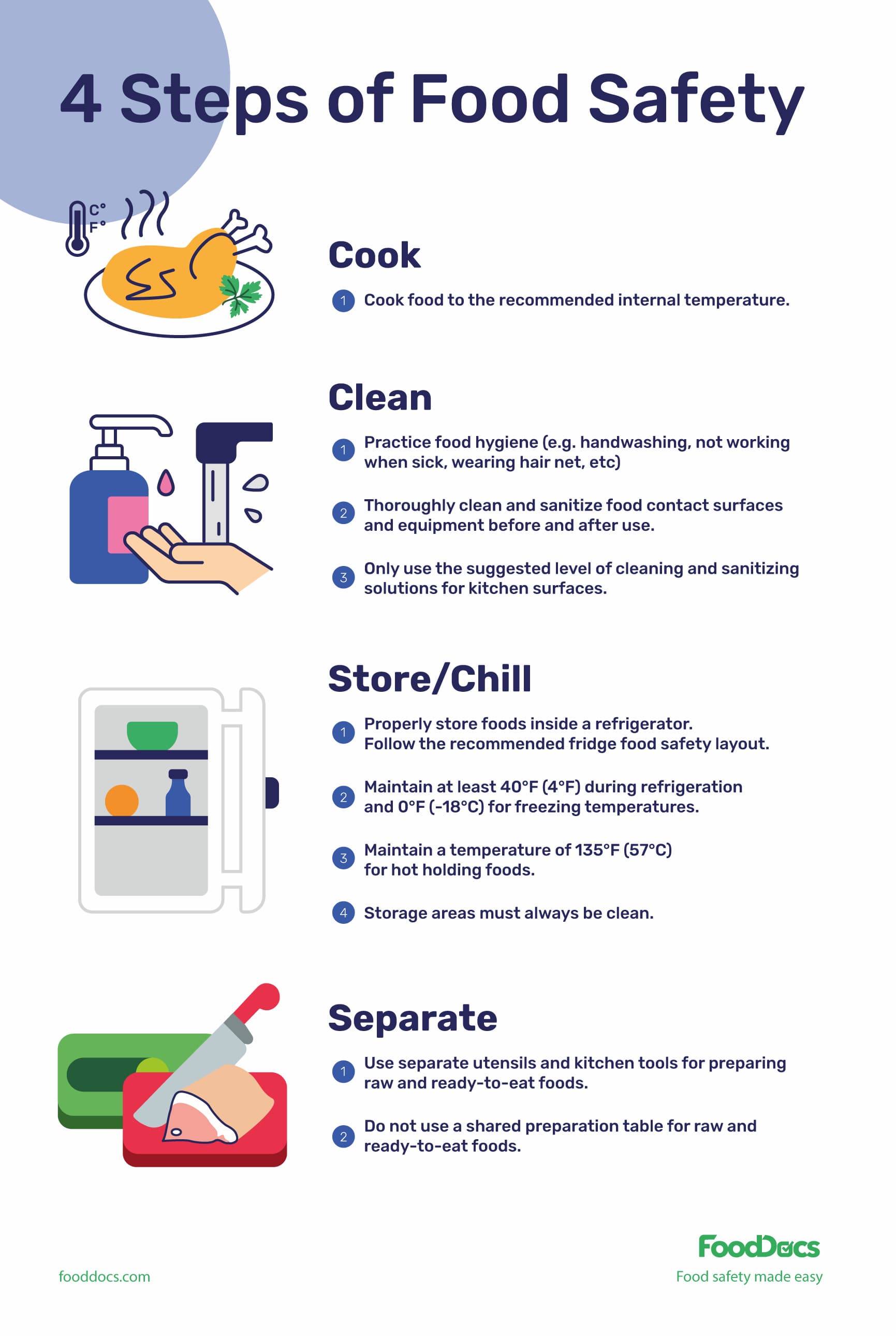How to Become a Award in the Prevention And Control of Infection: Expert Tips
Are you passionate about creating safer environments and protecting lives? Imagine being recognized for your expertise in infection prevention and control.
Earning an award in this vital field not only enhances your credibility but also opens doors to new opportunities. In a world increasingly aware of the importance of hygiene and health standards, your skills are needed more than ever. You’re about to discover practical steps that could set you apart as a leader in infection control.
Ready to elevate your career and make a real impact? Let’s dive into the essential strategies you need to achieve this accolade.
Key Skills For Infection Control
Becoming an expert in infection control demands specific skills. These skills ensure safe environments in healthcare and public spaces. Mastering them can lead to recognition in infection prevention. Let’s explore these essential skills.
Communication And Education
Clear communication helps share vital information effectively. It allows infection control experts to educate teams. This reduces misunderstanding and spreads awareness. Training staff consistently is key. It reinforces best practices and updates on new protocols.
Analytical Thinking
Analytical thinking aids in identifying infection trends. It helps in understanding the root causes of outbreaks. By analyzing data, experts can make informed decisions. This skill is crucial for developing prevention strategies. It ensures a proactive approach to infection control.
Attention To Detail
Attention to detail is vital for spotting potential risks. Small oversights can lead to big problems. Vigilance in monitoring hygiene practices is essential. It ensures compliance with standards. This careful observation maintains a safe environment for all.
Educational Pathways
Exploring educational pathways can lead to a career in infection prevention and control. Start with a foundation in healthcare studies. Pursue specialized courses focusing on infection control techniques and practices.
To excel in the field of infection prevention and control, understanding the educational pathways is crucial. With the right education and training, you can become a key player in safeguarding health within communities and healthcare settings. Whether you’re just starting out or looking to advance your career, there’s a path for you.
Relevant Degree Programs
Pursuing a degree in fields like public health, microbiology, or nursing can set a strong foundation. These programs offer essential knowledge about infectious diseases and how they spread. Consider enrolling in universities renowned for their healthcare programs to gain a competitive edge. Online degree options are also available, providing flexibility for those balancing work and study. Look for programs with courses in epidemiology, biostatistics, and health policy. These subjects are integral to understanding and controlling infection risks.
Certifications And Training
Certifications can significantly boost your credentials. The Certification in Infection Control (CIC) is one of the most recognized in the industry. Earning this certification requires a mix of work experience and passing an examination. Training workshops and seminars offer hands-on experience. They often cover topics such as sterilization techniques and outbreak response. Engaging in these can enhance your practical skills and keep you updated on the latest practices.
Continuing Education Opportunities
The field of infection control is constantly evolving. Continuing education helps you stay informed about the latest research and technologies. Many professional organizations offer webinars and online courses that you can access from anywhere. Networking at conferences can lead to learning about advancements and innovative practices. These events are not just about gaining knowledge but also about connecting with experts and peers. Have you considered how your current skills can be expanded or improved? Taking charge of your educational journey can open doors to rewarding opportunities. Are you ready to take the next step in your career in infection prevention and control?
Gaining Practical Experience
Gaining practical experience is essential to excel in the field of infection prevention and control. It’s the hands-on experience that truly helps you understand the intricacies of real-world challenges. Whether you’re just starting out or looking to enhance your skills, diving into practical opportunities can set you apart and bolster your expertise.
Internships And Volunteering
Internships and volunteering are golden opportunities to immerse yourself in the field. They provide a safe environment to learn and grow. You get to work alongside seasoned professionals, witnessing firsthand how theories are applied in practical scenarios.
Consider joining a local health organization or hospital that offers internships. Volunteering at community health events can also be invaluable. Such experiences not only enhance your skills but also build your confidence in dealing with real-life situations.
Have you ever thought about how these experiences can shape your career? The stories and insights from these roles often become talking points in interviews, showcasing your commitment and passion.
On-the-job Training
On-the-job training is where you truly refine your skills. It allows you to adapt and learn in a dynamic environment. You witness the ever-evolving nature of infection prevention firsthand.
Seek roles that offer robust training programs. Many healthcare facilities prioritize ongoing education. They provide structured learning alongside practical responsibilities, ensuring you grow with each task.
Imagine being part of a team that handles an unexpected outbreak. The lessons learned during such events are irreplaceable. They teach you how to think on your feet and make informed decisions swiftly.
Networking In The Field
Networking is a powerful tool in your career arsenal. It opens doors to opportunities and knowledge sharing. Engaging with peers and mentors can provide insights you might not find in textbooks.
Attend conferences and workshops related to infection prevention. Join professional groups or forums where you can discuss challenges and solutions. These interactions can lead to partnerships and collaborations that enrich your career.
Have you considered how a single conversation can change your perspective? Networking often introduces you to diverse viewpoints, helping you broaden your understanding of the field.
Practical experience is a journey, not a destination. Each step you take adds to your skill set and confidence. Where will you take your first step?
Staying Updated With Industry Trends
Keeping up with industry trends sharpens skills in infection control. Attending workshops and conferences provides valuable insights. Reading research papers and articles enhances knowledge on current practices.
Staying updated with industry trends is vital in infection prevention and control. The field is dynamic, and staying informed helps professionals enhance their expertise. Knowledge of the latest developments can lead to better practices. It can also improve patient outcomes. This section explores effective ways to stay current in this crucial field.
Research And Publications
Dive into the latest research. Scholarly articles offer insights into new findings. They provide evidence-based practices. Reading journals keeps you informed about innovations. It’s a great way to learn from experts. Find publications specific to infection control. They often highlight case studies and statistics. This helps in understanding real-world applications. Subscribe to journals for regular updates. Many offer online access for convenience.
Conferences And Workshops
Attend conferences regularly. They are hubs for knowledge exchange. Workshops offer hands-on learning experiences. Networking with peers broadens your understanding. Experts share their experiences in these events. This can bring fresh perspectives. Conferences often showcase new technologies. They highlight advancements in infection control. Look for events in your region. This makes attending easier and more affordable. Check for online options too.
Online Resources And Webinars
Explore online platforms. They offer a wealth of information. Webinars provide access to expert talks. Many are free and easy to join. Online courses can enhance your skills. They often cover current trends. Blogs and forums are great for discussions. They can offer practical advice. Follow industry leaders on social media. They often share valuable insights. Keep an eye on updates in online communities. They’re a treasure trove of information.
Achieving Recognition And Awards
Earning accolades in infection prevention demands dedication. Focus on innovative strategies and consistent safety practices. Build strong teams with ongoing training.
Achieving recognition in infection control is a commendable feat. Awards signify excellence and dedication. Professionals in this field contribute to global health. They prevent the spread of diseases and ensure safety. Recognition boosts morale and encourages continuous improvement. It highlights one’s commitment to public health. Below, explore how to build a strong portfolio, submit for awards, and gain peer and mentor recommendations.
Building A Strong Portfolio
A strong portfolio is essential. It showcases your achievements in infection control. Document your projects and initiatives. Include successful outcomes and innovative strategies. Show your role in preventing infections. Use clear, concise language. Highlight your leadership and teamwork skills. Include relevant certifications and training. Demonstrate your commitment to learning.
Submitting For Awards
Submitting for awards requires preparation. Research available opportunities in your field. Understand the criteria and expectations. Tailor your application to meet these standards. Provide evidence of your contributions. Use statistics and data to support your claims. Keep your submission organized and professional. Follow guidelines strictly. Ensure your application stands out.
Peer And Mentor Recommendations
Recommendations enhance your credibility. Seek endorsements from peers and mentors. Choose individuals who know your work well. Their support can strengthen your application. Ask them to highlight your skills and achievements. Recommendations should be specific and genuine. Include details of your impact in infection control. Positive feedback from respected professionals is invaluable.

Overcoming Challenges
Winning an award in infection prevention requires dedication and strategic planning. Focus on hygiene protocols and continuous education. Collaborate with healthcare professionals to enhance safety measures and share knowledge on infection control practices.
Becoming an award-winning entity in the prevention and control of infection isn’t without its hurdles. It’s a journey filled with challenges that test your resolve and creativity. Yet, it’s these very challenges that can lead to innovation and growth.
Dealing With Resource Limitations
Resource limitations are a common challenge in infection control efforts. You might find yourself with a tight budget, limited staff, or outdated equipment. The key is to maximize what you have. Consider prioritizing essential tasks and leveraging technology for efficiency. Collaborate with other departments to share resources and skills. Have you explored partnerships with local organizations for additional support?
Addressing Resistance To Change
Resistance to change is another hurdle that can slow down progress. People often cling to familiar methods, making it difficult to introduce new practices. Engaging your team is crucial. Communicate the benefits of new protocols clearly and provide training to ease the transition. Share success stories from other teams to illustrate positive outcomes. Could involving staff in decision-making increase buy-in and reduce resistance?
Managing Stress And Burnout
Stress and burnout are real risks in high-pressure environments like infection control. It’s important to recognize the signs early and take action. Self-care isn’t a luxury—it’s a necessity. Encourage regular breaks and promote a healthy work-life balance. Implement stress reduction programs or workshops. What simple changes could make a big difference in your team’s well-being? Navigating these challenges requires determination and a proactive mindset. Each step you take towards overcoming them brings you closer to achieving excellence in infection prevention and control.
Expert Tips For Success
Achieving recognition in infection control is not easy. It demands dedication and skill. Understanding expert tips can boost your chances of success. These strategies focus on communication, leadership, and safety.
Effective Communication Strategies
Clear communication is crucial in infection control. Use simple language to explain guidelines. Ensure everyone understands their role in preventing infections. Host regular meetings to discuss updates and concerns. Listen actively to team members. Encourage questions and feedback. This builds trust and ensures clarity.
Leadership In Crisis Situations
Leadership shines brightest during crises. Stay calm and focused. Make informed decisions quickly. Provide clear instructions to your team. Support and guide them through challenges. Lead by example and maintain a positive attitude. This inspires confidence and keeps the team motivated.
Promoting A Culture Of Safety
A culture of safety is vital in infection control. Prioritize safety in all operations. Establish protocols that protect everyone. Train staff regularly on safety practices. Recognize and reward safe behaviors. Encourage reporting of hazards without fear. Create an environment where safety is everyone’s responsibility.
Frequently Asked Questions
What Is Infection Prevention And Control?
Infection prevention and control involves measures to prevent the spread of infections. It includes hygiene practices, sterilization, and use of personal protective equipment. By implementing these strategies, healthcare facilities reduce infection rates and improve patient outcomes. Effective infection control is vital for safeguarding public health and ensuring safe medical environments.
How To Achieve An Award In Infection Control?
Achieving an award in infection control requires dedication to best practices. Engage in continuous learning, attend relevant workshops, and implement effective protocols. Regularly update your knowledge on new guidelines and technologies. Recognition often follows consistent efforts to enhance safety measures and demonstrate leadership in infection prevention strategies.
Why Is Infection Control Important?
Infection control is crucial for preventing disease spread in healthcare settings. It protects patients, staff, and visitors from infections. Effective measures reduce healthcare costs and improve patient care quality. Maintaining rigorous infection control protocols is essential for ensuring safety and minimizing the risk of outbreaks in hospitals and clinics.
What Skills Are Needed For Infection Control?
Skills needed for infection control include attention to detail and strong communication abilities. Professionals must understand hygiene practices, sterilization techniques, and risk assessment. Staying updated with guidelines and technological advancements is vital. Leadership and teamwork skills also play a crucial role in implementing effective infection prevention strategies.
Conclusion
Becoming an expert in infection control takes dedication and patience. Focus on learning best practices and applying them daily. Stay updated with the latest guidelines and research. This field requires continuous education and awareness. Networking with professionals can also boost your knowledge.
Practice makes perfect, so apply what you learn regularly. Remember, small steps lead to big improvements. Your efforts can make a significant difference in healthcare settings. Keep striving for excellence, and you’ll see progress. Infection prevention is crucial for a healthier world.
Stay committed, and success will follow. You can make a real impact.







